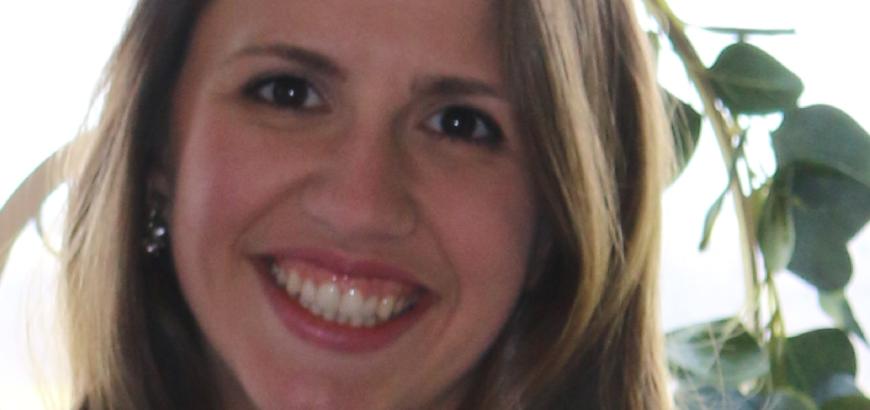Dr. Rajakovich arrived in January 2022 and established her UW lab; we’re pleased to introduce her and her research
Lauren Rajakovich was born in Pittsburgh, Pennsylvania. Her undergraduate studies took her south to North Carolina, before returning to Pennsylvania for her graduate education. She then went north to Massachusetts for her postdoctoral training before moving to the west coast to start her faculty position at the University of Washington in January 2022.
Lauren attended an all-girls high school that fostered her early love for science. Beyond traditional science classes, Lauren’s interests were piqued by stimulating workshop-style ‘mini-courses’ on topics such as the physics of rollercoasters, the science in science fiction films, and the chemistry of beauty products. Lauren was also a dedicated musician and attended Wake Forest University as a Presidential Scholar for her accomplishments as a classical pianist. However, her interests in science took precedence over her passion for music. She received a B.S. in Chemistry with honors and a concentration in biochemistry, as well as a minor in music. Lauren’s initial plans did not involve a career in academics. Instead, she planned to pursue a career in medicine. But formative research experiences as an undergraduate student and as a research technician after graduation led her to realize a new path toward a career in research and education.
As an undergraduate, Lauren spent two summers studying genetic disorders of fatty acid metabolism at the Children’s Hospital of Pittsburgh with Dr. Gerard Vockley. Genetic diseases were especially interesting to Lauren because she has a sibling with special needs. However, she became fascinated with the molecular and biochemical basis of human disease. Lauren’s honors thesis research at Wake Forest University with Professor Patricia Dos Santos focused her attention on biochemistry. She investigated essential sulfur trafficking pathways in model bacteria of human pathogens, such as Staphylococcus aureus and Bacillus anthracis, the causative agents of MRSA and anthrax, respectively.
Lauren did her graduate studies at the Pennsylvania State University in the joint laboratory of Professor J. Martin Bollinger Jr. and Professor Carsten Krebs, and received her Ph.D. in Biochemistry, Microbiology, and Molecular Biology in 2017. Her graduate research focused on mechanistic characterization of iron-dependent enzymes in microbial biofuel production and environmental phosphorus cycling. Metalloenzymes are used in nature to functionalize chemically unreactive sites in biomolecules, and catalyze reactions that are often inaccessible via synthetic chemistry. A mechanistic understanding of these enzymes can lead to important advances in chemical or biological catalysis for industrial and medicinal applications. Lauren used kinetic, spectroscopic, and structural methods to characterize microbial enzymes that convert fatty acids into hydrocarbons. Her work provided insights into the emerging reaction scope and mechanistic diversity of dinuclear iron enzymes that expand their biotechnological potential.
As a graduate student, Lauren also developed enthusiasm for teaching and mentoring. She was awarded the Outstanding Teaching Assistant Award and mentored multiple NSF-REU students and Penn State undergraduates that have gone on to graduate programs at MIT and Harvard. Lauren thoroughly enjoyed instructing her first course at the UW this spring quarter on Advanced Bio-Organic Chemistry. She engaged graduate and senior undergraduate students on topics including biological and chemical synthesis of biopolymers, biological catalysts and applications in synthetic chemistry, biological synthesis of natural products, and chemical tools for studying biology and biomedical applications.
For her postdoctoral research, Lauren joined the group of Professor Emily Balskus at Harvard University as a Merck Fellow of the Helen Hay Whitney Foundation. She applied her knowledge of bioorganic chemistry to interrogate novel metabolic functions of the human gut microbiota. This community of microorganisms has profound impacts on human health, but the underlying mechanisms are not well understood. Lauren’s research focused on the microbial metabolism of dietary nutrients associated with cardiovascular disease. She used a combination of microbiology, biochemistry, and bioinformatics to elucidate an unknown pathway to produce a disease-associated metabolite, providing the foundation to clarify the role of this molecule in disease and to develop potential therapeutic strategies.
At the University of Washington, Lauren is leading a highly interdisciplinary research program at the interface of chemistry and biology. Her research is focused on the chemical and mechanistic foundations of host-associated microbial community interactions, particularly in the human gut microbiome. The goal is to understand the chemistry underlying bacterial adaption to and influence on their environment. Her group integrates cutting-edge genomic methods, bioinformatics, and microbiology to discover new metabolic pathways in microbial communities, and then uses biochemistry and chemical biology to dissect novel chemical transformations. Lauren’s research group aims to understand the biological impacts of microbial chemistry, with the ultimate objective of driving biomedical, biotechnological, and environmental advances.
Since starting at the UW in January 2022, Lauren has been setting up her laboratory, assembling her research team, and initiating exciting research projects. Her enthusiastic team of three chemistry graduate students and numerous undergraduates is helping to equip the laboratory with unique capabilities for studying oxygen-sensitive bacteria and proteins. Beyond the chemistry department, Lauren and her group have integrated in the broader research community on campus as members of the UW Molecular Engineering & Sciences Institute and the UW Medicine Center for Microbiome Science & Therapeutics. They are excited about opportunities to collaborate and engage with these interdisciplinary groups and researchers across the University of Washington.
Lauren is thrilled to be starting her independent career at the UW and to explore the Pacific Northwest. She was attracted by the strength of the chemistry department and beyond in medicine, computer science, and engineering. Lauren was also impressed by the collegial, collaborative, and supportive environment of the department and the university. Because of the pandemic, Lauren went through the entire interview process virtually. Without stepping foot on campus or ever even visiting Seattle, Lauren had to rely on her “gut feelings” to make a decision about joining the faculty at the UW. Luckily, she is an expert on gut reactions!


